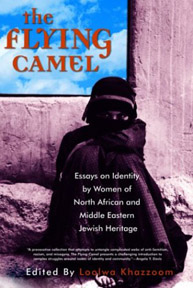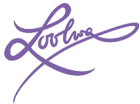Book Overview

The Flying Camel: Essays on Identity by Women of North African and Middle Eastern Jewish Heritage (Seal Press) brings to the public eye a world often hidden from view. Anthology contributors bridge divisions between Arab and Jew, East and West, and they are impacted directly by tensions between Islam, Judaism, and Christianity. Contributors possess the refreshing lens of those on the edge, insiders and outsiders to many different worlds. Pushed and pulled by the strong currents of today’s identity politics, they remain steadfast and refuse to be defined as “other” or “less than” by any of the communities to which they belong. As such, their stories sweep readers into a surprising journey of discovery. Each essay unveils the rich, multi-colored texture of identities commonly portrayed as one-dimensional or black & white.
Seventeen women share the joys and struggles of stepping forth from the shadows, demanding to be heard. Vivid, gripping narratives include the daring of a young Libyan woman who single-handedly rescued her family from assassination and the sexual rebellion of a traditional Iranian woman who grew up wearing a veil. Click here for summaries.
Early in the feminist movement, it was ground-breaking when anthologies were published representing African, Asian, and Latina women’s voices. The Flying Camel offers a similar challenge to Jewish women’s literature specifically and women’s literature in general. For this reason, numerous feminist leaders have endorsed this book, including Rebecca Walker, Angela Davis, Letty Cottin-Pogrebin, and Susan Weidman Schneider. In addition, professors from Harvard, Yale, Princeton, Columbia, Stanford, and numerous other private and state schools throughout the country have endorsed the book. Click here for endorsements.
Reviews
San Francisco Chronicle
Jerusalem Post
J: The Jewish Weekly
Endorsements
Irena Klepfisz
Associate Professor of Women’s Studies
Barnard College-Columbia University
New York, NY
Joshua Gamson
Associate Professor of Sociology
Yale University
New Haven, CT
Lawrence Rosen
Professor of Anthropology
Princeton University
Princeton, NJ
Kwame Anthony Appiah
Professor of Afro-American Studies and Philosophy
Director of Undergraduate Studies
Harvard University
Cambridge, MA
Professor Anne Lapidus Lerner
Director of Jewish Women’s Studies
Jewish Theological Seminary of America
New York, NY

